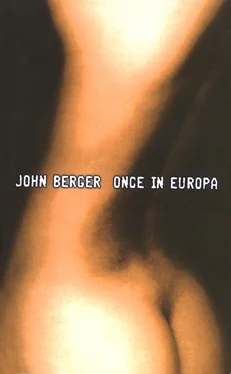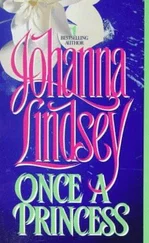John Berger - Once in Europa
Здесь есть возможность читать онлайн «John Berger - Once in Europa» весь текст электронной книги совершенно бесплатно (целиком полную версию без сокращений). В некоторых случаях можно слушать аудио, скачать через торрент в формате fb2 и присутствует краткое содержание. Год выпуска: 2014, Издательство: Bloomsbury Publishing, Жанр: Современная проза, на английском языке. Описание произведения, (предисловие) а так же отзывы посетителей доступны на портале библиотеки ЛибКат.
- Название:Once in Europa
- Автор:
- Издательство:Bloomsbury Publishing
- Жанр:
- Год:2014
- ISBN:нет данных
- Рейтинг книги:3 / 5. Голосов: 1
-
Избранное:Добавить в избранное
- Отзывы:
-
Ваша оценка:
- 60
- 1
- 2
- 3
- 4
- 5
Once in Europa: краткое содержание, описание и аннотация
Предлагаем к чтению аннотацию, описание, краткое содержание или предисловие (зависит от того, что написал сам автор книги «Once in Europa»). Если вы не нашли необходимую информацию о книге — напишите в комментариях, мы постараемся отыскать её.
Once in Europa — читать онлайн бесплатно полную книгу (весь текст) целиком
Ниже представлен текст книги, разбитый по страницам. Система сохранения места последней прочитанной страницы, позволяет с удобством читать онлайн бесплатно книгу «Once in Europa», без необходимости каждый раз заново искать на чём Вы остановились. Поставьте закладку, и сможете в любой момент перейти на страницу, на которой закончили чтение.
Интервал:
Закладка:
Seen from the height I’m now at, Father’s refusal to sell his farm to the factory looks absurd. We were surrounded. Every year Father was obliged to lead his four cows through an ever larger factory yard over more railway lines. Every year the slag mountains were growing higher, hiding the house and its little plot more effectively from the road and from its own pastures on the other side of the river. The owners first doubled, then trebled, the price they were prepared to pay him. His reply remained the same. My patrimony is not for sale. Later they tried to force him out by law. He said he would dynamite their offices. Now the snow covers all.
My job was to feed the rabbits. In the early spring it was dandelions. Father said there was no other valley in the world with as many dandelions as ours. Dandelion millionaires, he called us. Rabbits eat with such impatience, as if they are eating their way towards life! Their jaws munching the dandelion leaves was the fastest thing I’d ever seen and their muzzles quivered as fast as their jaws munched.
There was a black buck rabbit I hated. He had something evil in his eye. He was always waiting for his evil moment to come and he nipped me with his teeth more than once. Mother stunned the rabbits and strung them up by their hind legs and gouged out their eyes with a knife and they bled to death. When she did this it was always on a Friday, because a rabbit, roasted in the oven with mustard, was a feast to be eaten on Sunday, when the men could stay at the table drinking gnôle after lunch and not go to work.
You can drink two litres of cider and never piss a drop — it all comes out in sweat, Achille my boy, on the furnaces.
I tried to persuade Mother to kill the black rabbit. He’s our only big buck, she said. Eventually she cooked him. And to my surprise, I couldn’t eat anything. She must be coming down with something, Father said. I couldn’t eat because I couldn’t stop thinking of how much I hated him.
The moment the snow disappeared, Mother started to nag Father. They’re digging their gardens up at Pessy, she’d cry. It’s too soon to plant, he’d say, without looking up from his newspaper, the earth’s not warm enough. We’re always the last! she complained. And our cauliflowers last year? My cauliflowers were as big as buckets, he boasted.
It took Papa three days to turn the earth of the garden and to dig in the manure. I helped him by forking the manure out of the wheelbarrow. The lilac trees were in flower and a cuckoo was singing in the forest above the factory. It was as hot as in June. Father had his shirt-sleeves rolled up, and when he was too hot, he removed his cap and he wiped his bald head, but he refused to take off his black corduroy waistcoat. Every spring he said the same thing: Do the opposite of the walnut tree! I knew the answer to his riddle: the walnut is the first to shed its leaves and the last to come out in leaf.
The garden was almost dug. Its brown earth was raked and drying in the sun. The first green shoots would soon be appearing in straight rows without a fault, because, just as at school we drew lines in pencil in our exercise books to write our words on, so Mother made a line on the earth with a string when she planted her rows of seed.
My fork had three metal prongs like any other pitchfork, but its wooden shaft was shorter so it was easier for me to handle. Father had made it for me. All the year it leant against the wall by the tap in the stable, ready for when I helped him clean out the stable after the evening milking, my homework done.
Often he complained about my handwriting, and it’s true it was not as good as his. He wrote with loops and curlicues as if the whole word were a single piece of string.
The rain does better on the window pane, Odile, write it again!
In the garden he straightened his back, looked at me slyly and said: When you marry, Odile, don’t marry a man who drinks.
There isn’t a man who doesn’t drink! I said.
Fetch me a glass of cider from the cellar, he ordered me, from the barrel on the right.
He drank the cider slowly, looking at the mountains with snow still on them.
I’d give a lot, Odile, to see the man you’re going to marry.
You’ll see him all right, Papa.
He shook his head and gave me back the glass. No, Odile, I’ll never see the man you marry.
He said it smiling, but I couldn’t bear him saying it. I couldn’t bear the silence of what it meant. I said the first thing that came into my head: I won’t marry a man unless I love him, and if I love him, he’ll love me, and if we love each other … if we love each other, we’ll have children, and I’ll be too busy to notice if he drinks, Papa, and if he drinks too much too often I’ll fetch him cider from the cellar, so many glasses he’ll go to sleep in the kitchen and I’ll put him to bed as soon as the cows are fed.
The Barracks below are scarcely visible in the snow. I can spot them because of blue smoke coming from a chimney. A woman is crossing the footbridge over the river. The Barracks were three minutes’ walk from the factory — the same as our house in the opposite direction. From our house to the footbridge was five minutes’ walk. Three if I ran. Mother often sent me to the shop by the Barracks to buy mustard or salt or something she’d forgotten. I walked to the bridge and then ran. At whatever time of day, the men who lived there would cry out and wave. They worked on shifts, and of those not working or sleeping some would be washing their clothes on the grass, some preparing a meal by an open window, some tinkering with an old car they hoped to put on the road. In the winter they lit bonfires outside and they brewed tea and roasted chestnuts. They were forbidden to fish in the river.
If I stopped running they held up their arms and grinned and tried to pat my head. I was always relieved to cross the bridge back to our side. Father said the Company had built the Barracks to house a hundred men as soon as the factory was finished. The Company knew they wouldn’t find more than two or three hundred local workers and so they foresaw from the beginning that they would need foreigners. Every man who lodged in the Barracks had his own secrets. Three, four, perhaps more. Impenetrable and unnameable. They turned over these secrets in their hands, wrapped them in paper, threw them in the river, burnt them, whittled them away with their knives when they had nothing else to do. Hundreds of secrets. We in the village on our side of the river had only four. Who killed Lucie Cabrol for her money? Where above Peniel is the entrance to the disused gold mine? What happens at the bridegroom’s funeral before they put him in his coffin? Who betrayed the Marmot, who was Michel’s uncle, after the factory-gate meeting? Only four secrets. Across the river they in their sheds kept hundreds.
From here, river, house, sheds, factory, bridge, all look like toys. So it was in childhood, Odile Blanc.
One blazing July day in 1950, Mademoiselle Vincent, the schoolmistress, came to the house. I hid in the stable. She wore a hat whose brim was as wide as her shoulders; it was silver-grey in colour and around it was tied a pink satin ribbon.
Merde! said Father. It’s the schoolteacher. Look, Louise!
I’ll be slipping out, Achille, said Mother.
I have come to talk to you about your daughter, Monsieur Blanc.
Not doing well at school? Do sit down, Mademoiselle Vincent.
On the contrary, I’ve come to tell you she — she scratched her hot freckled shoulder — on the contrary, I’ve come to tell you how well your Odile is doing.
Kind of you to come all this way to tell us that. A little coffee?
Father poured coffee into a cup, took off his cap and adjusted it further back on his head.
Читать дальшеИнтервал:
Закладка:
Похожие книги на «Once in Europa»
Представляем Вашему вниманию похожие книги на «Once in Europa» списком для выбора. Мы отобрали схожую по названию и смыслу литературу в надежде предоставить читателям больше вариантов отыскать новые, интересные, ещё непрочитанные произведения.
Обсуждение, отзывы о книге «Once in Europa» и просто собственные мнения читателей. Оставьте ваши комментарии, напишите, что Вы думаете о произведении, его смысле или главных героях. Укажите что конкретно понравилось, а что нет, и почему Вы так считаете.












